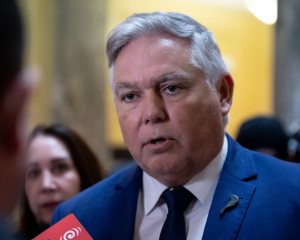A boundary change has made the left-leaning stronghold of Dunedin North more rural, tilting more votes towards National, but the Labour MP is likely to be returned.
The seat now takes in Palmerston, Hampden, Herbert, Moeraki and Dunback, comprising about 2500 electors who were formerly in the Waitaki seat.
The new areas voted predominantly National for party and candidate in 2011.
With Green and National focused on the party vote, Labour's Dr David Clark does not face much of a contest for the electorate vote.
A surging Green vote has been squeezing Labour's party vote hold on Dunedin North, which it held by just 420 votes over National, whose vote has also grown.
The Green Party captured 23% of the Dunedin North party vote last time- more than twice its 11% vote nationwide.
Green Party co-leader Metiria Turei is standing for a third time in Dunedin North, where the Green vote has been a couple of elections ahead of its national result.
In 2005, the party took 11% (compared with 5% nationally), and 16% (7% nationally) in 2008.
The revelations of Dirty Politics could have a significant impact on voter turnout in Dunedin North, because of the youth vote, and coverage of the saga on social media.
The entrance of the high-profile Internet Mana party could also have an impact.
National has made controversial changes in tertiary education, to democratic governance, research funding allocations, university funding incentives, and allowance and loan entitlements.
The tertiary education shake-up is unlikely to affect voting patterns, but might increase turnout.
Despite not asking for the electorate vote, Ms Turei drew more than 5700 votes in 2011.
Dr Clark's 3489 vote majority ought to increase after a solid first term in Parliament.
He has been door-knocking a lot in the new parts of the electorate, and feels confident of support.
Dr Clark said Palmerston in particular was hurting from the lay-offs at the Macraes gold mine and associated subcontractors.
Health and education are the mainstays of the Dunedin North economy, and both will undergo big infrastructure upgrades in the coming years.
The Labour Party tried to seize the initiative with an election promise to fast-track a cornerstone piece of infrastructure, the Dunedin Hospital rebuild.
The leaking and rundown Dunedin Hospital is an embarrassment to the Government, but was also neglected by the previous Labour Government.
The hospital will be rebuilt whichever party is in power, but given the perception of Dunedin's declining status as a main centre, the promise of a top-tier tertiary-level hospital was significant.
The hospital announcement was part of Labour's Dunedin package that aims to stall the city's sliding fortunes, capitalising on insecurities about it losing its claim as a main centre.
National's Dunedin North candidate Michael Woodhouse, who has risen quickly in National's ranks and is tipped as a possible health minister, was scathing in response to Labour's announcement last month.
Mr Woodhouse, who seldom comments on local issues, considered the fast-tracking announcement ''irresponsible'', and said National would also build a new hospital, but would plan it carefully.
Labour has promised building work would start in its first term, and says it will sort out the troubled finances of the Southern District Health Board so it can afford capital charges on the new build.
Possible obstacles to the time frame include a shortage of contractors because of the Christchurch rebuild, and the University of Otago campus priority development plan.
The university's $650 million building plan begins in the middle of next year, with the start of construction of the new dental school.
Spread over 15 years, the plan is expected to create hundreds of jobs and will boost Dunedin's economy.
Neither National nor Labour candidates have picked up the Otago Therapeutic Pool as a local election issue, despite the fact the Dunedin community responded strongly to the threat to its future.
A delay-ridden plan to centralise hospital patient meals means the jobs of Dunedin Hospital workers are still in limbo, their fate perhaps to be determined by the election, as Labour has promised to ditch the plan.
Also in limbo is Dunedin's National Poisons Centre, which faces possible amalgamation with other national services.
It is not a large employer, nor financially profitable, but it is the sort of niche specialist service that helps Dunedin maintain its status as a centre of knowledge.
The National Party's strategy was to push ''brand National''.
Mr Woodhouse told the Otago Daily Times the party had more volunteers out and about in the Dunedin seats than ever.
''The issues in Dunedin aren't that different from the issues anywhere else,'' Mr Woodhouse said.
He was focused on the party vote, as it determined the make-up of the next Government.












